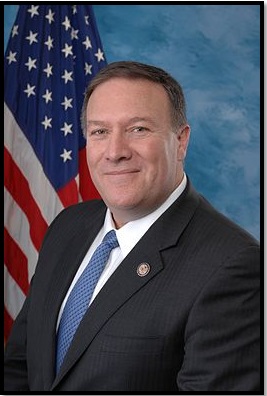Tehran Protests, Government Responds
On June 26, President Hassan Rouhani accused the United States of waging a “psychological, economic and political war” against Iran. “The U.S. cannot defeat our nation, our enemies are not able to get us to their knees,” he said at an annual conference organized by the Judiciary. He blamed “foreign media propaganda” for the devaluation of Iran’s currency, the rial.

 On May 24, Secretary of State Mike Pompeo discussed the new U.S. strategy to counter Iran following President Trump's decision to withdrawal from the nuclear deal.
On May 24, Secretary of State Mike Pompeo discussed the new U.S. strategy to counter Iran following President Trump's decision to withdrawal from the nuclear deal. On May 24, the Treasury Department designated nine individuals and entities that were procuring "export-controlled, U.S.-origin goods for sanctioned Iranian airlines." The sanctions also targeted procurement networks based in Turkey.
On May 24, the Treasury Department designated nine individuals and entities that were procuring "export-controlled, U.S.-origin goods for sanctioned Iranian airlines." The sanctions also targeted procurement networks based in Turkey. On May 10, Iranian Foreign Minister Mohammad Javad Zarif sent a
On May 10, Iranian Foreign Minister Mohammad Javad Zarif sent a